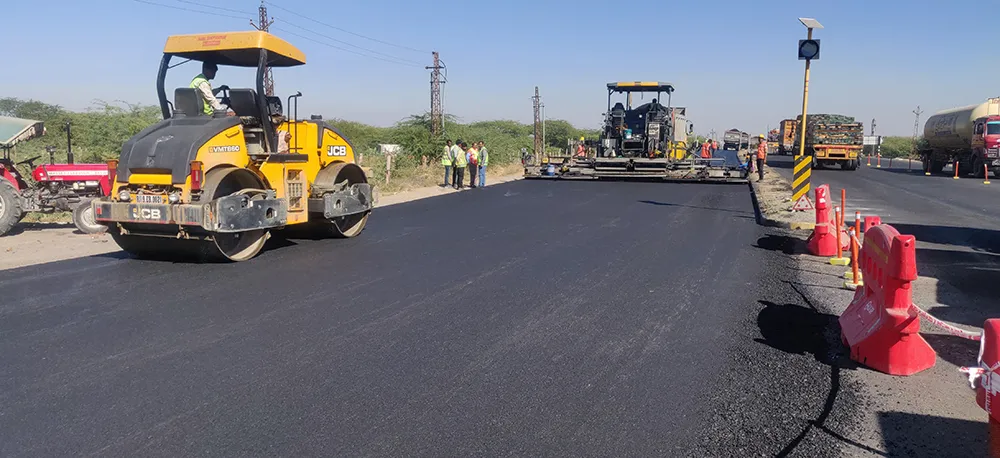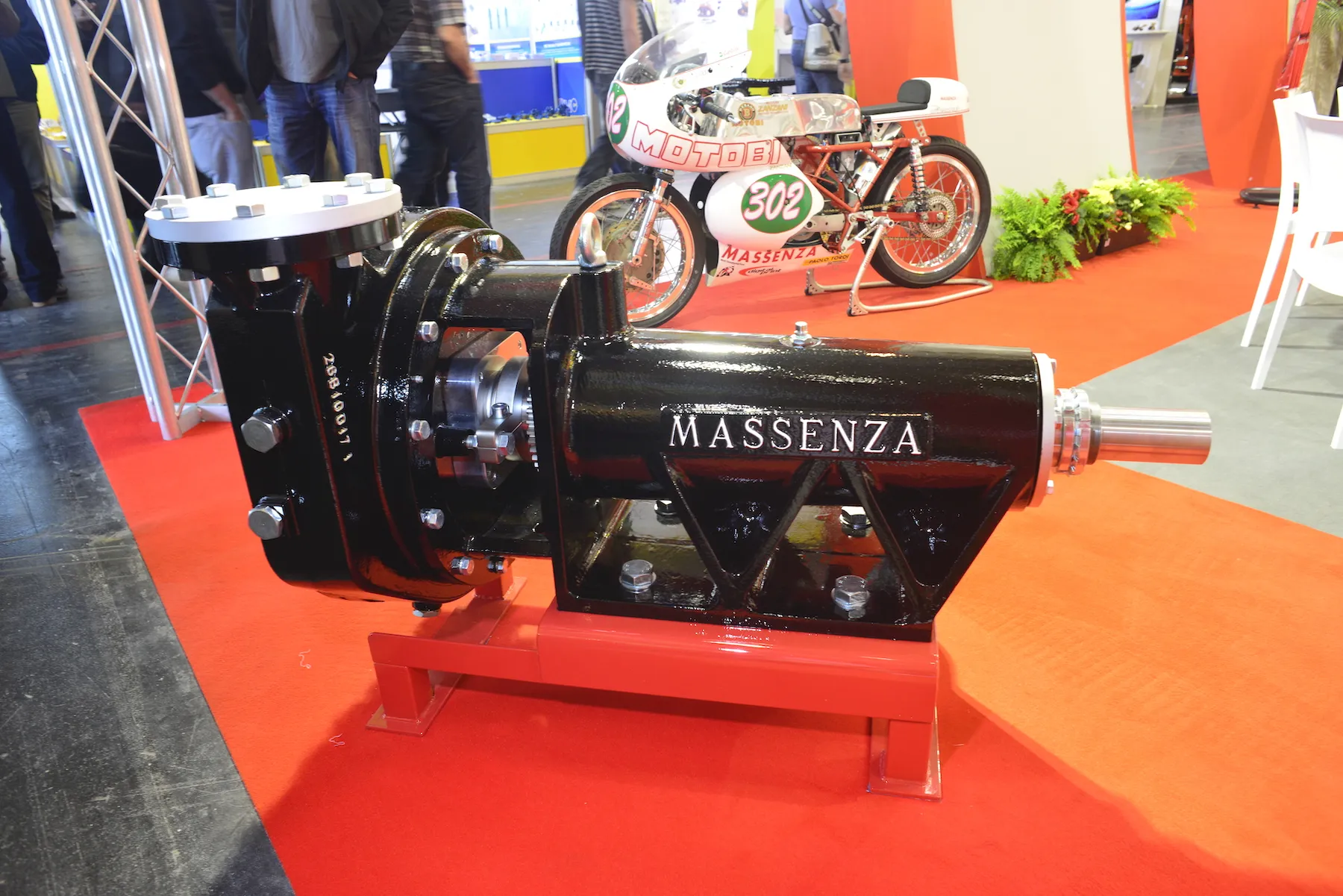
PGXpand® is a Bitumen-Friendly polymer developed by Sripath Technologies LLC, New Jersey, USA and marketed in India by Bitpath Pvt. Ltd., Mumbai. A two lane-kilometer stretch of 40 mm BC overlay was paved on the Beawar Pali Pindwara Tollway using the PGXpand PMB Mix. This tollway is part of a high-density freight corridor in the Indian State of Rajasthan.
The demonstration trial was organized and managed by Indinfravit; the contractor was Radhika Engineering; the mix design was conducted by L&T Infrastructure Development Projects Ltd., and the PGXpand Polymer was supplied by Bitpath®.
Mr. Sachin Raje, General Manager of Bitpath and Dr. Krishna Srinivasan, President of Sripath Technologies®, along with a team of experts from Indinfravit, Radhika, and L&T IDPL witnessed the demonstration trial near Jodhpur, Rajasthan. The trial was extremely successful. “PGXpand is easier to process and to laydown”, said Mr. Kuppam Praneeth, Maintenance Engineer at Indinfravit.
PGXpand, a bitumen-friendly polymer, is more than just an alternate polymer, it is a cut above the rest. PGXpand Modified Bitumen are easy to manufacture using low shear mixers, short mixing times, and lower mixing temperatures. The resulting PMB has excellent storage stability.
“PGXpand is highly dosage efficient. It lowers the viscosity and enhances the internal lubricity properties in Mixes. It improves the workability of PMB Mixes and mimics the advantages of a warm mix additive. It allows paving at lower temperatures and makes the mix easier to compact.”, said Raje.
PGXpand helps reduce energy consumption both during the manufacture process and the roadway laydown operation. In addition to eliminating the need for a separate warm mix additive, there is no need to add sulfur for cross-linking, avoiding the associated health and safety concerns.
Srinivasan mentioned, “PGXpand enhances high temperature properties of bitumen without impacting low temperature properties. It delivers roadways with outstanding rutting resistance, fatigue properties, long-term durability, and overall superior performance.”
For the Rajasthan trial, the control material was a CRMB binder with a softening point of 64 °C. The PGXpand PMB, consisting of a VG30 binder dosed with 1.5 % PGXpand, had a softening point of 84.2 °C. A Mix with 5.2 % PMB was used for one section of the road and for the more distressed section, a Mix with 5.4 % PMB was used. A pavement density of 93 % was achieved using a vibratory roll compactor.
Deepak Madan of Sripath Technologies, elaborated on other applications of PGXpand, he said: “PGXpand is also used to manufacture hybrid PMB systems; for hot spray seal applications; and for road repair and maintenance projects.”
“PGXpand has been tested, evaluated, and vetted by leading experts in academia, industry and transportation agencies from around the world. It has been trusted and used on roadways across the globe since 2016.”, remarked Raje.
For more information, visit https://sripath.com
Content produced in association with Sripath







